War and humanitarianism, medicine and public health, rights and justice... Discover CRASH publications sorted by themes.
The fact that CRASH publications are written from an aid practitioner's, rather than researcher's, perspective, does not exempt them from the demands of rigorous research methods. We try hard at this, with the help of (volunteer) research professionals. The publications are not the MSF party line, but rather tools for reflexion based on MSF's framework and experience. They have only one purpose: to help us better understand what we are doing. Criticisms, comments and suggestions are more than welcome - they are expected.
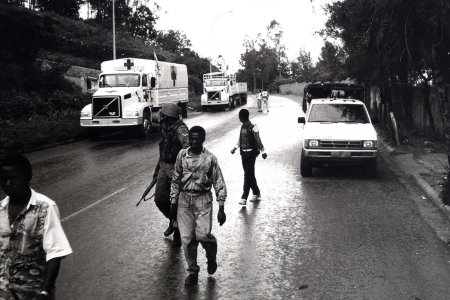 Xavier Lassalle
Opinion
Xavier Lassalle
Opinion
Writing About Rwanda: President Kagame’s Fellow Travellers
10/23/2017How can anyone write about Rwanda without being called a denialist? Marc Le Pape tries to craft an answer in this article, published on the website The Conversation on 19 October 2017.
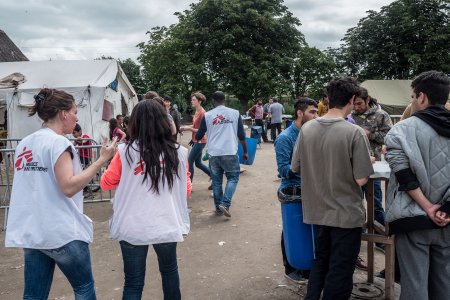 Charles Habib
Analysis
Charles Habib
Analysis
Sheltering, hosting or receiving refugees: the unresolved ambiguities of the La Linière refugee camp
07/05/2017Following the dismantlement of the Basroch camp in Grande-Synthe and the resettlement of refugees in the new La Linière camp, in the spring 2016, Michaël Neuman and Franck Esnée wanted to focus their analysis and story on the “camp” – as an object –, its nature and management. This article was originally published in Alternatives Humanitaires #5, in July 2017.
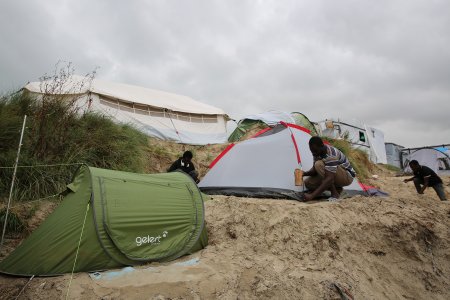 Mohammad Ghannam
Op-ed
Mohammad Ghannam
Op-ed
Calais has become a cage in a jungle
06/17/2017In this post, published in Border Criminologies, Michaël Neuman and Corinne Torre speak out against the inhuman conditions imposed on migrants and refugees in Calais by the French state. This piece was originally published in French in Le Monde.
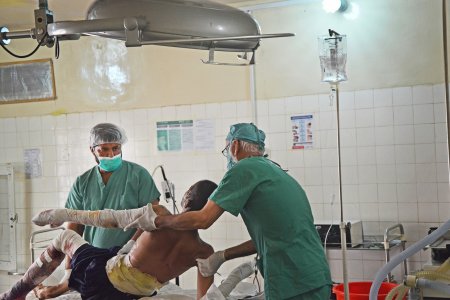 Kate Stegeman
Review
Kate Stegeman
Review
Review "Medical Humanitarianism: Ethnographies of practice"
03/30/2017Michaël Neuman's review of "Medical Humanitarianism: Ethnographies of practice" edited by Sharon Abramowitz and Catherine Panter-Brick (Philadelphia: University of Pennsylvania Press, 2015)
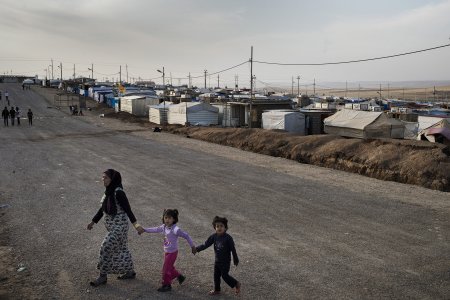 Yuri Kozyrev/Noor
Opinion
Yuri Kozyrev/Noor
Opinion
When camps become cities
03/06/2017There can scarcely be any more sensitive marker of geopolitical transformations than the refugee. Not the individual refugee as such, but the phenomenon of refugees, the representations that make them visible and the discourse around them. From this point of view, 2016 was a year of upheaval, the like of which Europe had not seen since the war in the former Yugoslavia.
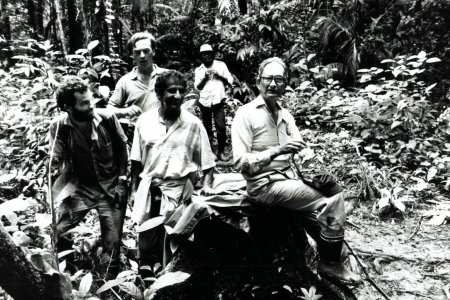 MSF
Analysis
MSF
Analysis
Dying for humanitarian ideas: Using images and statistics to manufacture humanitarian martyrdom
02/15/2017This article has been inspired by an analysis conducted by MSF-Crash of humanitarian security management and why and in what ways it is evolving. We endeavour not only to describe humanitarian imagery, but to analyse its consequences - the risks it generates for aid workers operating in perilous situations.
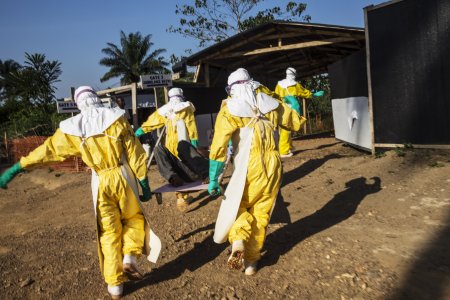 Anna Surinyach
Cahier
Anna Surinyach
Cahier
Médecins Sans Frontières and medical quality
01/01/2017The question of quality in the work of Médecins Sans Frontières has been asked from the very beginning of MSF's existence. On the one hand, the issue of improving the quality of practice is a part of ordinary professional activity; on the other hand, Médecins Sans Frontières' work involved working in distant lands and very specific environments, which demanded adjustments to medical practice as a result.
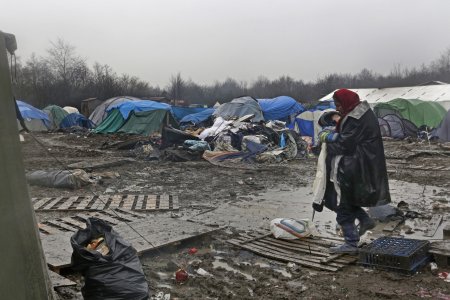 Jon Levy
Analysis
Jon Levy
Analysis
Temporary palliatives to an ongoing humanitarian need: MSF’s intervention in Dunkirk
11/24/2016This article was originally published in Humanitarian Exchange Magazine #67 in September 2016. In this paper, Angélique Muller and Michaël Neuman attempt to explore the lessons learnt through examining the decisions as well as the difficulties MSF encountered in its provision of assistance to migrants in Grande-Synthe.
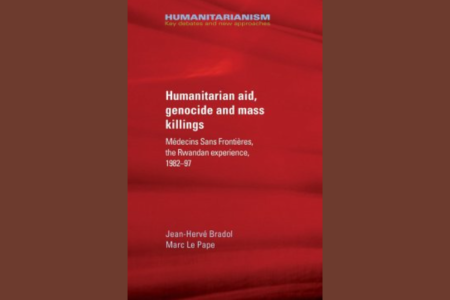 Book
Book
Humanitarian aid, genocide and mass killings. Médecins Sans Frontières, the Rwandan experience, 1982-97
11/04/2016Throughout the 1990s, Médecins Sans Frontières (MSF) was forced to face the challenges posed by the genocide of Rwandan Tutsis and a succession of major outbreaks of political violence in Rwanda and its neighbouring countries.
